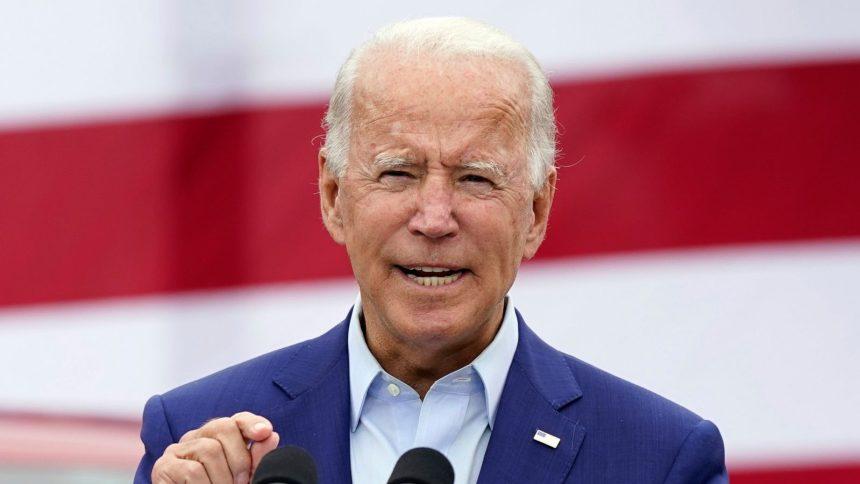The White House has announced a $100 million grant initiative aimed at state and local governments to accelerate the construction of new housing units. This move is part of a broader effort by the Biden administration to address the ongoing housing shortage in the United States.
The nation is currently experiencing record levels of housing production, largely driven by a surge in apartment building during the pandemic. According to recent data, the number of housing units under construction has reached levels not seen in half a century, with approximately 60,000 multifamily units completed in June alone. This uptick in housing supply has led to rent stabilization in certain areas.
However, the construction of single-family homes remains sluggish, hitting a four-year low in June. Overall, housing construction has been on a decline since December, even as the Federal Reserve maintains steady interest rates and Senate Republicans block a $78 billion tax deal intended to bolster housing tax credits.
READ ALSO:Ethiopia’s Prime Minister Kickstarts Construction of New Housing Complex
In response, the Biden administration is deploying various strategies across multiple federal agencies to streamline the housing construction process. These efforts include simplifying permitting procedures, enhancing financing options, and revising regulations to expedite development.
Lael Brainard, the National Economic Advisor, emphasized the importance of housing affordability, stating, “The president and vice president recognize that housing is a critical component of a household’s budget, both for the one-third of American households that rent, and also for so many Americans who want to own their own homes. That’s why it’s critical that we continue to provide strong incentives to build more units.”
The grants announced by the White House build upon an existing U.S. Department of Housing and Urban Development (HUD) program designed to encourage cities and states to remove regulatory barriers to housing construction. Vice President Kamala Harris previously announced $85 million in funding for 21 jurisdictions across 19 states and the District of Columbia as part of this initiative.
READ ALSO: Biden and Trump Differ on Lowering Home Prices and Rents
Rather than funding individual housing projects, the program aims to enhance the long-term capacity for increasing housing supply by incentivizing cities to reform their zoning laws. For example, Bend, Oregon, received a $5 million grant to develop a five-year plan focused on increasing housing construction and addressing infrastructure challenges.
Federal officials have noted strong demand for the program, with $13 in requests for every available dollar in the first funding cycle.
“The federal government has not had any real tools to help leaders at the local and state governments take on some of these ideas. Building housing is such a local experience,” said Adrianne Todman, Acting Secretary for HUD. “The federal government has become a true partner in helping local leaders cut the red tape.”
Tuesday’s announcement also includes changes to programs across multiple agencies. For instance, the White House is adjusting a Department of Transportation program to make billions of dollars in low-cost financing available for transit-oriented housing developments. Developers and city leaders have criticized the program’s regulatory requirements, which were originally designed for large-scale rail projects, as too costly for office-to-residential conversions. The new guidance exempts many of these loans from environmental reviews under the National Environmental Policy Act (NEPA), reducing both the time and cost of housing production.
Neera Tanden, Director of the White House Domestic Policy Council, explained the significance of this change: “Extensive NEPA review for buildings that already exist adds to both the time it takes to produce housing and therefore to the cost of housing. If you can build it in six months instead of a year, that makes it a lot cheaper.”
READ ALSO: HUD to Award Over $3.5 Billion to Organizations Assisting the Homeless
In addition, HUD and the Department of the Treasury are expanding low-cost federal financing available to state and local housing agencies through a public-private risk-sharing initiative that has already facilitated the construction of tens of thousands of affordable housing units since 2021.
While Vice President Harris has yet to release a detailed housing plan for her presidential campaign, she has publicly supported the Biden administration’s recent executive actions. “Every American deserves affordable housing so they have a roof over their head and a place to call home. That is why President Biden and I have a plan to build millions of new homes in communities across our nation, which will bring down the cost of rent and help more Americans buy a home,” Harris said in a statement. “Today, the Biden-Harris Administration is taking another critical step to help communities throughout the country remove barriers to building more affordable housing.”



